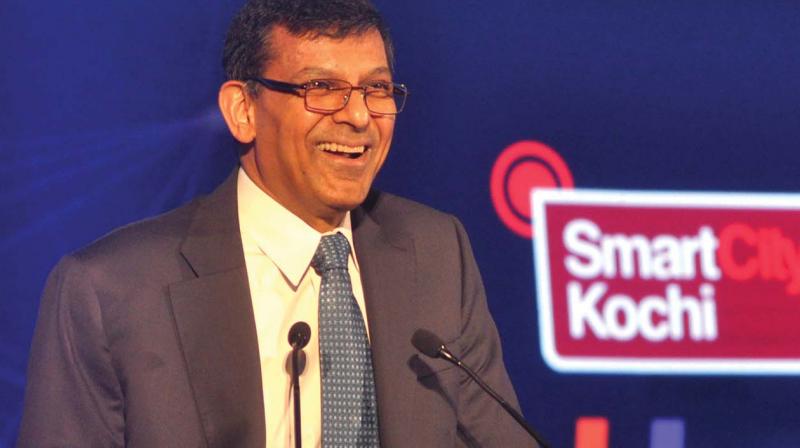India cannot be indifferent: Raghuram Rajan
Raghuram Rajan says “India cannot afford to miss out on artificial intelligence and robotics revolutions.

KOCHI: "The world is changing fast and we (India) cannot remain indifferent to the changes," says Dr Raghuram Rajan, former governor of the Reserve Bank of India. India cannot afford to miss out on artificial intelligence and robotics revolutions, he said addressing #FUTURE, the Global Digital Summit, here on Friday. "The world is changing very fast. We need not be a victim of that change but can embrace it and participate on our terms. We have to be leaders rather than followers. The world is coming to India and we have to be prepared," Dr. Rajan said.
He also urged the policy makers to address the weakness in education and skill development in the country. The failure to remedy these weaknesses will turn the country into a two-tier economy with the 'haves' staying in gated communities and the 'have-nots' outside servicing them, he said. "This is not an ideal situation socially or desirable for a stable society in the long term," he added. Speaking in detail about the technological changes and the fears of job displacement, Dr Rajan said some of the concerns about the changes were overstated and the changes may be slower than expected. The countries such as India, however, cannot afford to remain complacent due to the fact that "unlike the west, we don't have jobs to lose because we don't have those jobs in the first place. We need far more jobs," he said.
Stressing the need for world class higher education institutions, Dr Rajan said the country should be able to bring back some of the exported talent to populate those institutions. "We are not as global as we should be even now and we need to join the global supply chain sooner rather than later," he said. He also batted for a focused tariff regime facilitating such participation and appreciated Kerala government for appointing Geetha Gopinath as an advisor, who is an expert on the issue. "But it is important that the state listen to people who talk about how to create a better position in the global trading system," he added. He called for policy level initiatives in smoothening of the paths for the flourishing of industries in the country with innovative financing solutions. Dr Rajan cited the lack of risk financing as a major lacunae faced by the companies. The lack of risk financing is forcing some of the Indian companies and start-ups to incorporate abroad leading to the ownership by foreign entities, he pointed out.
US protectionism may hit global recovery
The protectionist turn in the US trade policy could pose a setback to the ongoing recovery of the global economy and trigger a potential trade war, says Dr Raghuram Rajan, former governor of the Reserve Bank of India. Addressing the global digital summit, #FUTURE, here on Friday, Dr. Rajan said the current anti-trade policies were closely connected with the technology. The fall in jobs for the middle has been one of the major factors for anxiety seen in the industrial world reflecting on the kind of anti-trade moves today. "The move against trade is disguised against technology. You cannot proceed against technology but you can proceed against trade. Ultimately, the cause is loss of jobs and the belief that we could get those jobs back by staying in the way (of technology)," Dr. Rajan said.
Speaking to reporters later on the sidelines of the summit, he said he would not like to describe the situation as 'trade war.' "I don't want to use the term trade war. I don't think we are there yet. But I do think it is very important and we stay away from confrontations because that could harm the current recovery, which has been beneficial to the entire world," he said. "The situation is very worrisome and should not be taken lightly," he said and hoped that better sense will prevail and the countries will move away from confrontation. The noted economist stressed the need to shift people from agriculture into industries and services where income and productivity are much higher. "Our job statistics are not good. We have by various counts 40 to 50 per cent of our population in agriculture, which is producing 15-18 per cent of the GDP. That means they are essentially having much lower income than the rest of the country," he said.

